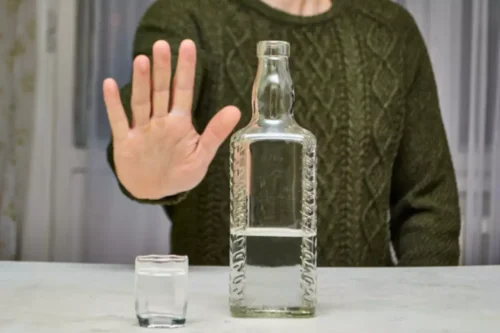
Your liver breaks down most of the alcohol so it can be removed from your body. This process can generate harmful substances that may promote inflammation, damage the organ and can contribute to alcoholic fatty liver disease. Mixing prescription drugs with alcohol is a common practice among individuals struggling with substance use disorder. Alcohol https://ecosoberhouse.com/ can mess with medication and people can become addicted to the pleasurable effects caused by drinking and prescription drugs. Some who do not have genetic risk factors may develop alcoholism if raised in an environment that encourages or normalizes maladaptive drinking behaviors. A person who engages in these practices may also develop alcoholism.
Mental health conditions
Steatotic liver disease develops in about 90% of people who drink more than 1.5 to 2 ounces of alcohol per day. Heavy drinking can also lead to a host of health concerns, like brain damage, heart disease, cirrhosis of the liver and even certain kinds of cancer. There are currently three medications approved by the FDA for the treatment of an alcohol use disorder.
What questions should I ask my healthcare provider?
Treatment may involve standard therapies used to treat other mental illnesses, including cognitive behavioral therapy (CBT), which is commonly used to treat depression, among other disorders. They can assess whether you have a risky drinking pattern, evaluate your overall health, help create a treatment plan, and refer you to programs or other healthcare providers if necessary. Health care professionals use criteria from the Diagnostic and Statistical Manual of Mental Disorders, Fifth Edition (DSM-5), to assess whether a person has AUD and to determine the severity, if the disorder is present. Severity is based on the number of criteria a person meets based on their symptoms—mild (2–3 criteria), moderate (4–5 criteria), or severe (6 or more criteria). In addition, risk factors are cumulative, such that having more than one risk factor significantly increases the probability that one may develop a specific disease or disorder. Alcoholism refers to use of alcohol that results in an individual experiencing significant distress and or dysfunction in daily life.

Family History
Experiencing at least two symptoms throughout the course of a year merits a diagnosis, from mild to moderate to severe. To date, several studies have reported predictive models for diabetes and its complications10,11,12, but prediction models for all-cause mortality in a nationally representative person with diabetes have rarely been reported13. Any number of traumatic experiences can place a person at risk for developing an alcohol disorder. For example, a military member who had survived a gruesome wartime event may turn to drinking alcohol because they are unable to healthily process their memories.
Family History With Alcohol Addiction
Calibration curves for 3, 5, and 10-year mortality risk prediction for diabetes. The solid line represents the performance; the closer to the diagonal dashed line, the better the prediction (the dashed line on the diagonal represents a perfect prediction of an ideal model). Hone is an online clinic that helps men and women manage their health. As part of your subscription and as medically indicated, physicians prescribe medications, and recommend supplements that are delivered to you from the comfort of your home.

Drinking has been a socially acceptable practice all over the world for many years, and adults can feel pressure to be part of this. Kids in high school and college feel the need to be “cool,” accepted and like they’re in on the fun. Heavy drinking has long been considered an acceptable practice among teens and young adults ages 18 to 34, and keeping that drinking going past this age is a factor in what causes alcoholism.
Frequent Alcohol Consumption Over A Long Period

It may shift from stimulant to sedative in line with whether blood alcohol content is rising or falling. Given the power of alcohol on the brain, people who drink heavily may come to rely on it to regulate their mood. Before it becomes problematic, why do people become alcoholics why do people turn to alcohol in the first place? One is simply its rewarding consequences, such as having fun or escaping social anxiety. Having an impulsive personality plays into the decision to seek rewards despite negative repercussions.
- They may have powerful mood swings that seem to change their personality.
- Alcohol changes the behavior of proteins responsible for letting substances exit your intestinal walls, Jandes explains.
- Mixing prescription drugs with alcohol is a common practice among individuals struggling with substance use disorder.
- But there’s plenty of research to back up the notion that alcohol does lead to weight gain in general.
- However, it’s difficult to discern if drinking was the primary problem, or whether lifestyle choices such as diet and exercise influenced health outcomes as well.
If necessary, patients may receive intravenous fluids, vitamins, and other medications to treat hallucinations or other symptoms caused by withdrawal. The most severe form of alcohol withdrawal is known as alcohol withdrawal delirium or delirium tremens, often referred to as the DTs. Symptoms (which are typically experienced in addition to others caused by alcohol withdrawal) include delirium (confusion), high blood pressure, and agitation. While the exact causes of alcoholism are not known, a number of factors can play a role.
- Your body breaks alcohol down into a chemical called acetaldehyde, which damages your DNA.
- The changes can endure long after a person stops consuming alcohol, and can contribute to relapse in drinking.
- Roughly 15 million people in the United States were diagnosed with an AUD in 2018, including 19.2 million men, 5.3 million women, and 401,000 adolescents ages 12–17.
- An occasional low-ABV lager probably won’t mess with your vital signs, and you can always put that second or third beer down if you’re concerned.
